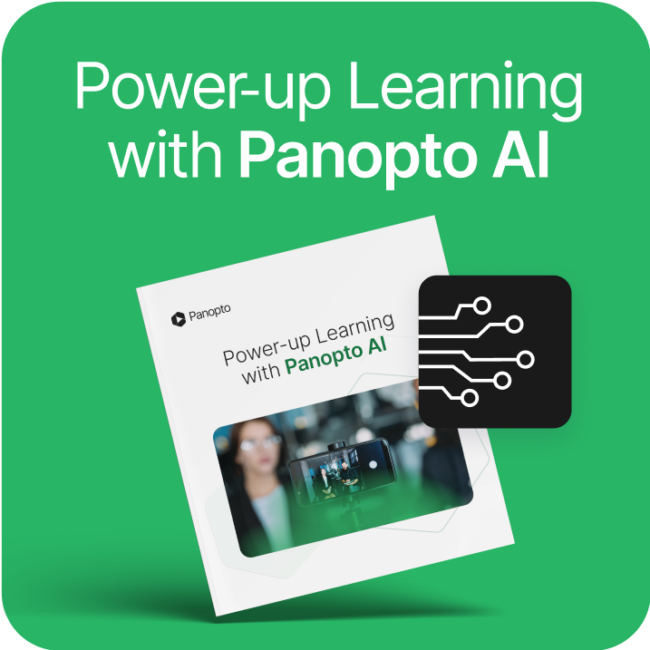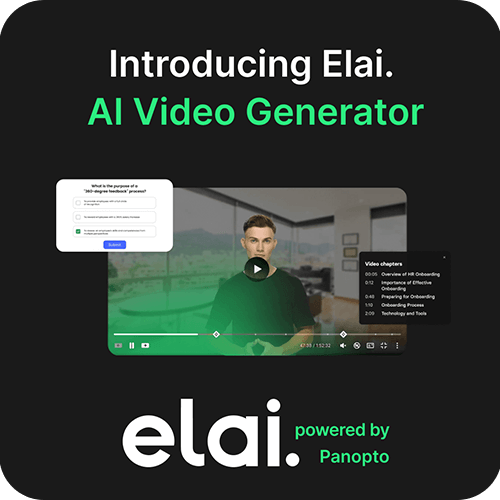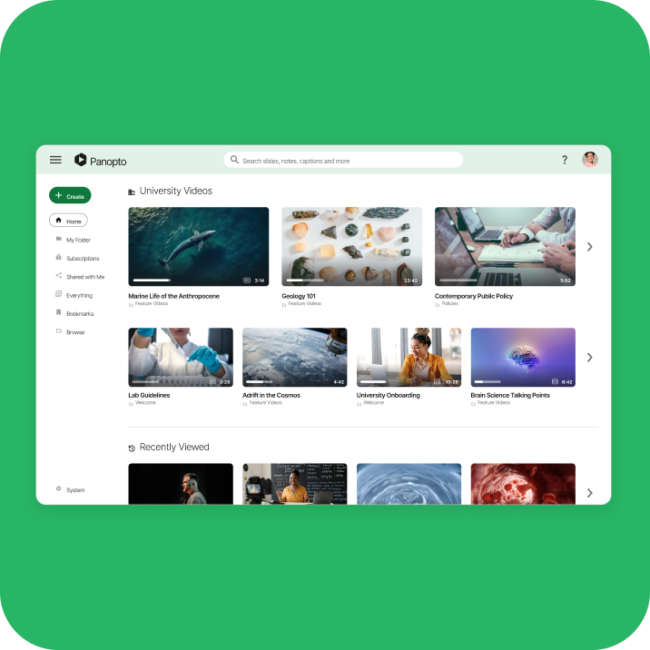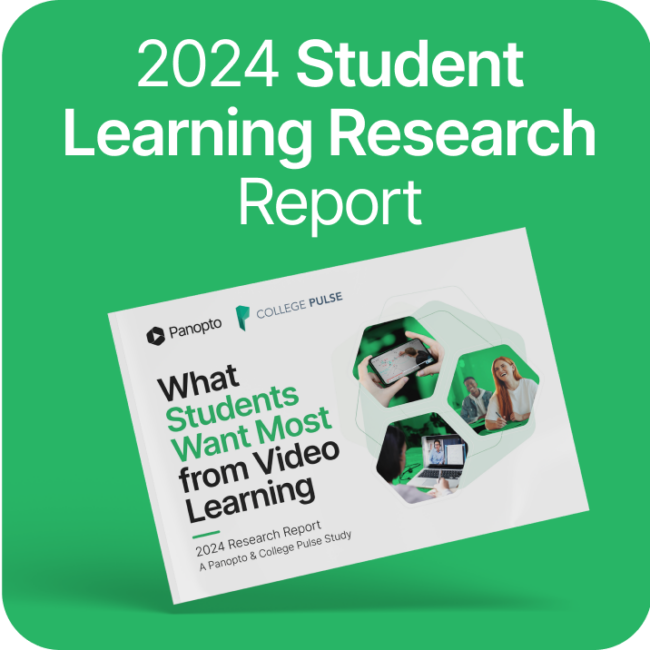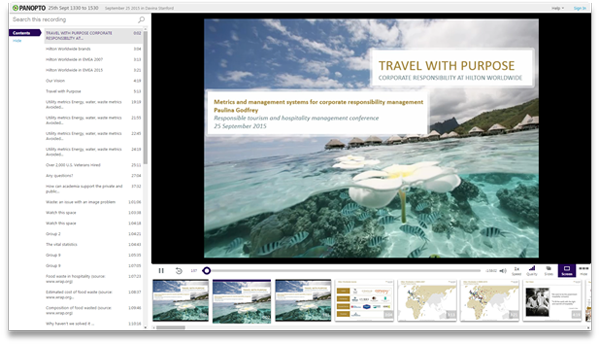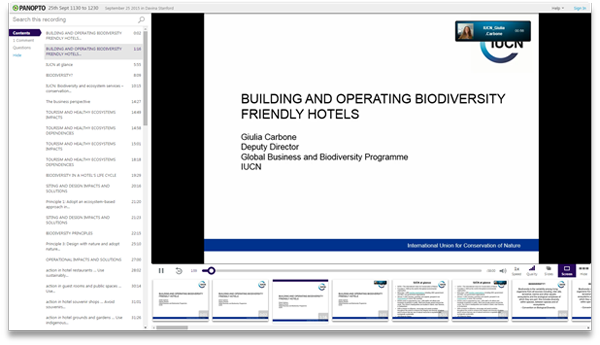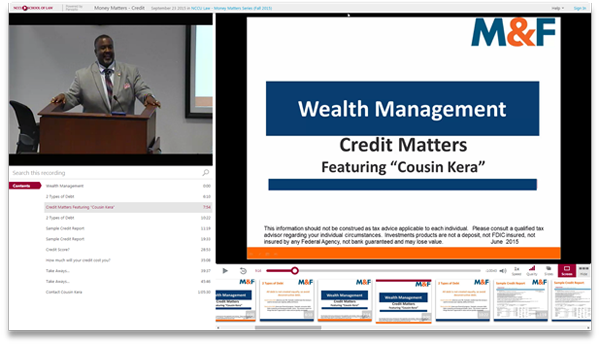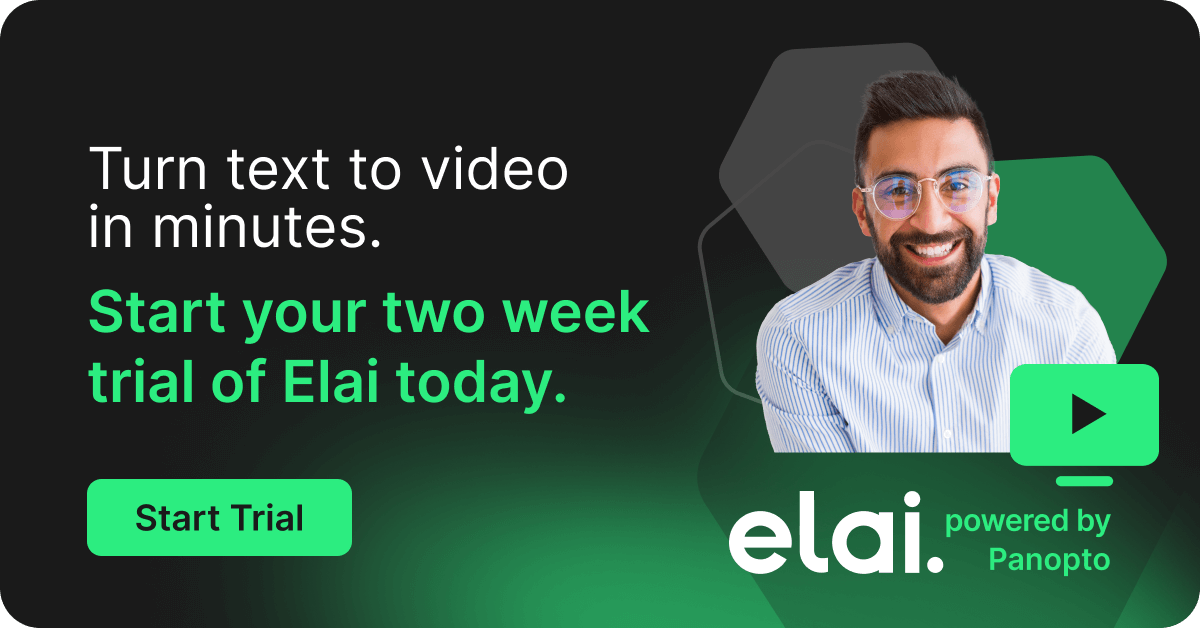- Uncategorized
This Week In Ideas Shared With Panopto — September 25, 2015
In 1859 it was common knowledge that heavy things fell faster than lighter things. That objects fall at a speed relative to their mass was, after all, a cornerstone of Aristotle’s theory of gravity.
Trouble is, that “fundamental fact” was fundamentally wrong.
Someone just had to prove it.
Enter Galileo. Captivated by an contradiction presented in a simple thought experiment — if a light object and a heavy one were tied together, would the light object slow the fall of the heavy one, or would the whole thing fall faster as the combination of the two objects would be heavier than either individually? — the Italian scientist set about to demonstrate that what everyone knew to be true just wasn’t so.
Bringing his hypothesis to an audience, Galileo climbed the steps of the Leaning Tower of Pisa leaned over the top ledge, and dropped two balls of different weight down to the ground below.
When the balls struck simultaneously, Galileo had proven to himself that the force of gravitational acceleration operated independent of mass — and just as importantly, had presented concrete evidence to all those present that the old Aristotelian theory was untrue.
Galileo’s presentation was so simple and so powerful that today it’s become a staple of physics classrooms everywhere — even repeated on the Moon during the Apollo 15 mission.
As we learn more about our world, acquire and refine new skills, and identify opportunities to improve old processes, part getting others to accept and adopt what we’ve learned is demonstrating that the old “common knowledge” or “best practice” simply isn’t so (at least, not anymore).
And like Galileo before, perhaps the best way to share that message it to prove it. If you have the opportunity to scale the great architecture of Italy, take advantage of the platform. For the rest of us, along with any conference sessions or brown-bag meetings we might lead, sharing a video presentation and demonstration of what we’ve learned can be a simple and easy way to share with others what we’ve learned — and even make that new know-how available on-demand, anytime, anywhere.
This week we saw more and more people taking advantage of the power of video to share ideas, present information, and show how the world works. And in the spirit of passing it on, these are just a few of the ideas shared this week with Panopto’s video presentation software.
Making Health Markets Work for the Poor
Join the Duke Global Health Institute to hear from Onno Schellekens, managing director of the PharmAccess Foundation, has he discusses how to make healthcare markets work for the poor. Schellekens contends that the key is to address market failures by building institutions from the bottom up, to lower risks, increase mutual trust, and thus reduce costs, increase investments, and spur demand & supply cycles in healthcare. Onno works to show that public-private partnerships focusing on such efforts can fast-track development in countries where the public sector doesn’t deliver quality care to the vast majority of its poor population. In doing so, partners must combine practical implementation of innovative finance & delivery models, with scientific research and evidence-based advocacy, to achieve lasting results.
Metrics and Management Systems for Corporate Social Responsibility
Paulina Godfrey, Senior Sustainability Manager, Hilton Europe Middle East and Africa joins Leeds Beckett University for the 2015 Responsible Tourism and Hospitality Management Conference. Godfrey discusses how Hilton Worldwide addresses and measures its corporate social responsibility initiatives, using the company’s Travel With Purpose program as an example.
Corporate Reporting on Biodiversity Impacts and Management
Stay with the audience at Leeds Beckett University and the 2015 Responsible Tourism and Hospitality Management Conference to hear from Giulia Carbone, Deputy Director Global Business and Biodiversity Programme of the International Union for Conservation of Nature. Carbone discusses how businesses can and should look beyond simple conservation measures and instead embrace biodiversity preservation as an essential part of being a good citizen of the Earth.
Wealth Management: Credit Matters
Finally this week, sit in with the students at the North Carolina Central University School of Law for this installment of the university’s Money Matters series, designed to share the basics of financial literacy with incoming students. This session looks into the question of personal credit, including how to read a credit report, how to assess a credit score, and how much debt on credit will cost you in the long run.
Try It For Yourself
Panopto makes it easy for anyone, anywhere to record presentations and share them online, both as live streaming webcasts and recorded on-demand video. To see how Panopto can help you share your ideas, contact our team for a free trial today.
